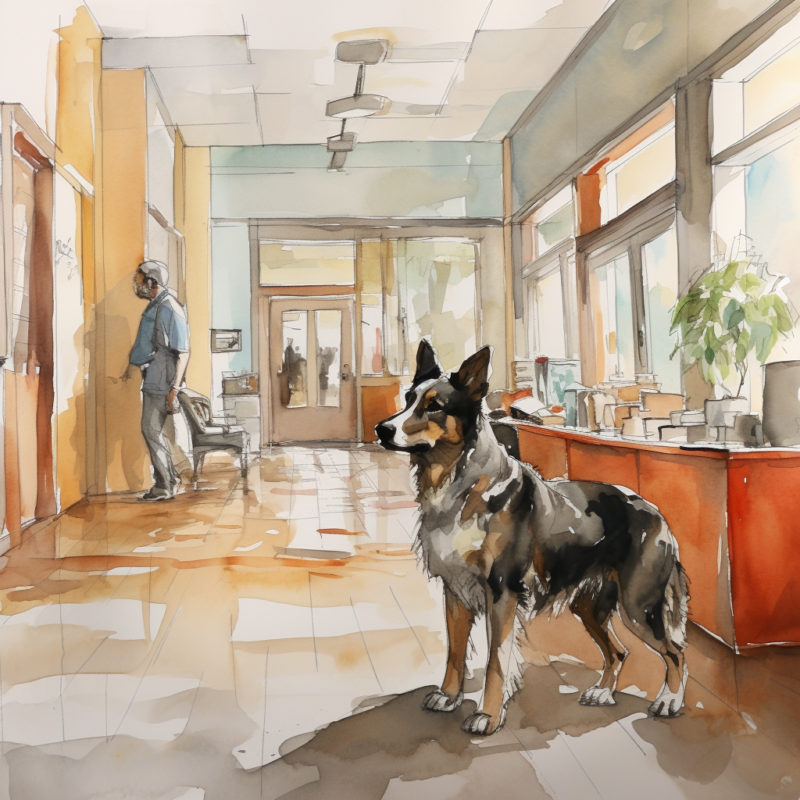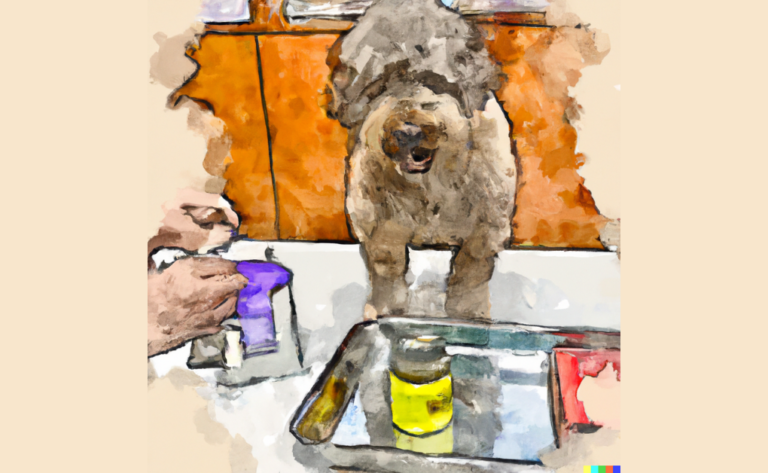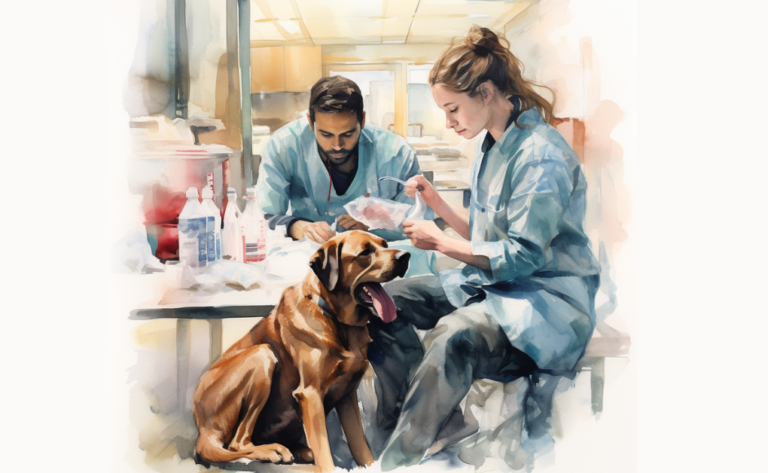Recognizing Early Signs of Dog Health Issues
Being a responsible and attentive pet owner means watching for early signs of dog health issues in your canine companion. We’ll discuss some common early warning signs of health problems in dogs and how to spot them before they become more severe. By learning to recognize these subtle cues, you can ensure that your dog gets the care they need promptly, ultimately leading to a healthier, happier, and longer life for your beloved pet. So, let’s delve into the world of canine health and learn how to become proactive in detecting potential issues early on.
Common Health Problems in Dogs
Dogs can experience a variety of health problems throughout their lives. Some common health issues affecting dogs include:
Dogs can experience a variety of health problems throughout their lives. Some common health issues affecting dogs include:
Ear Infections
Often caused by bacteria, yeast, or ear mites, dogs with floppy ears or who swim frequently are more prone to ear infections.
Skin Allergies
Dogs can develop skin allergies due to various factors, such as environmental allergens, food, or flea bites, leading to itching, redness, and skin irritation.
Fleas and Ticks
These parasites can cause itching and skin irritation and sometimes transmit Lyme disease or Ehrlichiosis.

Intestinal Parasites
Dogs can be infested with internal parasites like roundworms, hookworms, whipworms, or tapeworms, which may cause diarrhea, vomiting, weight loss, and anemia.
Heartworms
Heartworms in dogs refer to a serious and potentially fatal disease caused by parasitic worms called Dirofilaria immitis. These worms reside in the heart, lungs, and associated blood vessels of affected dogs, causing severe heart failure, lung disease, and damage to other organs in the body. It’s transmitted through the bite of infected mosquitoes.
Dental Problems
Dental diseases in dogs, also known as periodontal diseases, are a group of conditions affecting the health of a dog’s mouth, particularly the teeth and gums. These diseases, ranging from plaque buildup to severe gingivitis and tooth loss, are primarily caused by bacterial infections and inflammation. Dental diseases can significantly impact a dog’s overall well-being, as they can lead to discomfort, difficulty eating, and systemic infections if left untreated.
Obesity
Overweight dogs are at a higher risk for various health issues, including diabetes, heart disease, and joint problems. Recent statistics show that almost 60% of dogs are classified as overweight or obese.
Arthritis
Arthritis in dogs, also referred to as osteoarthritis or degenerative joint disease, is a chronic condition characterized by the deterioration of cartilage in a joint. As the protective cartilage wears away, the bones rub together, causing discomfort, inflammation, and a decrease in mobility. The disease is progressive, meaning it worsens over time, and can significantly affect a dog’s quality of life.
Diabetes
Diabetes mellitus in dogs is a chronic metabolic disorder characterized by insufficient production or improper functioning of insulin, a hormone that regulates blood sugar levels. Without adequate insulin, the dog’s body cannot efficiently utilize glucose for energy. This results in abnormally high glucose levels in the blood, which can have harmful effects on various body systems.
Canine Parvovirus
Canine parvovirus is a highly contagious viral disease in dogs, typically affecting unvaccinated puppies. The virus attacks rapidly dividing cells in the body, particularly in the gastrointestinal tract, leading to severe intestinal damage. Parvovirus is resilient, can survive in the environment for a long time, and is transmitted through contact with contaminated feces.
Canine Distemper
Canine distemper is a highly contagious and potentially fatal viral illness that affects dogs. The virus attacks several body systems, including the respiratory and nervous systems, resulting in a wide range of severe clinical symptoms. It is most often spread through airborne exposure, from infected dogs’ respiratory secretions. Vaccination is a key preventive measure against this disease.
Inflammatory Bowel Disease
Inflammatory Bowel Disease (IBD) in dogs is a chronic condition characterized by the prolonged inflammation of the walls of a dog’s gastrointestinal tract. The disease disrupts the normal functions of the stomach, small intestine, or large intestine, leading to difficulty in digesting and absorbing food. It can affect dogs of any age or breed but is more common in middle-aged and older dogs.
Kidney Disease
Impaired kidney function can result from various factors such as age, genetics, or infections, leading to symptoms like increased thirst, frequent urination, and weight loss.
Cancer
Dogs can develop various types of cancer, including lymphoma, mammary gland tumors, and skin tumors, with symptoms and prognosis varying depending on the type and stage of cancer.
Preventive care, a balanced diet, regular exercise, and routine veterinary check-ups can help maintain your dog’s overall health and address potential health issues before they become severe.
When Should You Take Your Dog to the Vet?
While individual symptoms may vary depending on the specific illness or condition, here are some general signs that your dog may be sick and needs to see a veterinarian:

- Lethargy or unusual tiredness: If your dog is less active than usual, sleeping more, or showing a lack of interest in their everyday activities, it could indicate an underlying health issue.
- Loss of appetite: A sudden loss or refusal to eat for more than a day can indicate illness.
- Vomiting and diarrhea: Occasional vomiting or diarrhea may not be a cause for concern, but if it’s persistent, severe, or accompanied by other symptoms, it’s time to see a vet.
- Coughing, sneezing, or difficulty breathing: Respiratory issues can indicate infections or other health problems.
- Changes in urination: Increased frequency, difficulty, or pain while urinating or blood in the urine can signal urinary tract infections or kidney problems.
- Unexplained weight loss or gain: Rapid weight changes could indicate an underlying health issue.
- Skin issues: Rashes, excessive itching, hair loss, or skin lumps should be checked by a veterinarian.
- Bad breath or bleeding gums can be signs of dental issues requiring professional attention.
- Changes in behavior: Sudden aggression, anxiety, or other behavioral changes can indicate pain or illness.
- Excessive panting or shaking: While panting can be expected for dogs, excessive panting or shaking could indicate pain, stress, or a medical problem.
- Difficulty walking or standing: Limping, stiffness, or difficulty moving can be signs of joint issues, pain, or neurological problems.
- Discharge from eyes, ears, or nose: Discharge, especially if it’s thick, discolored, or foul-smelling, can indicate an infection or other health issue.
- Seizures or uncontrolled body movements could be signs of a neurological disorder or severe health issue.
- Persistent whining or crying: Dogs may vocalize when in pain or experiencing discomfort.
Suppose you notice any of these signs or any other unusual changes in your dog’s behavior or physical condition. In that case, you must consult your veterinarian for an examination and appropriate care. Early intervention can significantly affect your dog’s prognosis and recovery.
Emergency Warning Signs of Dog Health Issues
Emergency warning signs in dogs require immediate attention from a veterinarian, as they can indicate severe health issues or life-threatening conditions. Some of these emergency signs include:
- Difficulty breathing or severe coughing: Labored or rapid breathing, choking, or persistent coughing can indicate respiratory distress, which requires immediate veterinary attention.
- Seizures: Sudden, uncontrolled body movements or loss of consciousness can be signs of a neurological disorder or other serious health issues.
- Uncontrolled bleeding: Profuse bleeding from a wound in the urine, nose, mouth, or rectum warrants immediate veterinary care.
- Inability to urinate or defecate: Straining to urinate or defecate without passing any waste could signal a urinary or gastrointestinal obstruction, which can be life-threatening.
- Bloat or torsion: A swollen, rigid, or distended abdomen, accompanied by restlessness or attempts to vomit, can indicate bloat or torsion, a medical emergency in dogs.
- Excessive vomiting or diarrhea: Persistent, severe vomiting or diarrhea, mainly if it contains blood, can lead to dehydration and requires urgent veterinary care.
- Severe pain or obvious distress: Signs of severe pain or distress, such as excessive vocalizing, shaking, panting, or an inability to get comfortable, warrant immediate medical attention.
- Loss of balance or coordination: Sudden disorientation, dizziness, or difficulty walking can indicate neurological or severe health issues.
- Pale, blue, or white gums: Gums that appear pale, blue, or white can signal a lack of oxygen or poor circulation, possibly due to severe illness or internal bleeding.
- High fever: A high fever (above 103°F or 39.4°C) can indicate a severe infection or other critical medical condition.
- Paralysis or sudden weakness: Sudden inability to move or extreme weakness, especially in the hind limbs, can indicate a spinal injury or other severe health problem.
- Eye injuries: Severe eye injuries, such as trauma, excessive discharge, or a bulging eye, require immediate veterinary care to prevent vision loss.
- Ingestion of toxic substances: If you suspect your dog has ingested a toxic substance, such as antifreeze, chocolate, or rat poison, seek emergency veterinary care immediately.
- Trauma: Injuries resulting from a car accident, fall, or animal attack require prompt medical attention.
If you observe any emergency warning signs in your dog, immediately contact your veterinarian or the nearest veterinary clinic. Prompt action can save your dog’s life and improve its chances of a successful recovery.
What to Do When Your Pet Is Sick
When your dog is sick, taking appropriate steps to ensure their comfort and address their medical needs is essential. Here are some actions to consider:
- Observe your dog closely: Pay attention to your dog’s behavior, symptoms, and overall well-being. Keep track of any changes, including the duration and frequency of symptoms.
- Provide a comfortable environment: Ensure your dog has a quiet, warm, and comfortable resting space. Keep their bedding clean and dry.
- Keep your dog hydrated: Encourage them to drink water to prevent dehydration, especially if they are experiencing vomiting or diarrhea. Offer small amounts of water frequently if your dog is not drinking independently.
- Adjust feeding as needed: If your dog has a reduced appetite, offer small, frequent meals of easily digestible food. Consult your veterinarian for specific dietary recommendations based on your dog’s condition.
- Avoid self-diagnosing or self-medicating: Do not give your dog any medications without consulting your veterinarian. Some human drugs can be toxic to dogs, and improper dosages can worsen their condition.
- Contact your veterinarian: If you notice any signs of illness, contact your veterinarian for advice. Describe the symptoms you have observed and provide as much information as possible. Your veterinarian may recommend an appointment for an examination, diagnostic tests, or treatment.
- Follow your veterinarian’s advice: If your veterinarian prescribes medication or recommends specific care, follow their instructions closely to ensure your dog’s recovery.
- Monitor your dog’s progress: Keep track of your dog’s response to treatment and inform your veterinarian of any changes or concerns.
- Keep a regular schedule: A consistent feeding, walking, and playtime routine can help reduce stress and comfort your sick dog.
- Be patient and supportive: A sick dog may be less energetic, sleep more, or be irritable. Offer comfort, affection, and reassurance to help them feel better.
If your dog’s condition worsens or does not improve within a reasonable timeframe, consult your veterinarian again for further evaluation and treatment options. In case of emergency warning signs or severe symptoms, seek immediate veterinary care.
Healthy Living with Dogs
Maintaining your dog’s overall health involves several factors, including proper nutrition, regular exercise, and routine veterinary care. Here are some tips to help you keep your dog healthy:
- Balanced diet: Feed your dog a high-quality, age-appropriate diet to ensure they receive the nutrients for optimal health. Avoid feeding table scraps, which can contribute to obesity and nutritional imbalances.
- Portion control: Overfeeding can lead to obesity, which increases the risk of various health issues. Follow the feeding guidelines on your dog’s food packaging, or consult your veterinarian for appropriate portion sizes.
- Fresh water: Always provide clean water for your dog to prevent dehydration and support overall health.
- Regular exercise: Ensure your dog gets daily physical activity to maintain a healthy weight, build muscle strength, and promote mental well-being. The type and duration of exercise will depend on your dog’s age, breed, and physical condition.
- Mental stimulation: Engage your dog’s mind with interactive toys, puzzle feeders, and training activities to prevent boredom and promote mental health.
- Routine veterinary care: Schedule regular check-ups with your veterinarian, including vaccinations, parasite prevention, dental care, and age-appropriate screenings.
- Grooming: Regular grooming, including brushing, bathing, and nail trimming, helps maintain your dog’s skin and coat health, reduces shedding, and prevents matting.
- Dental care: Brush your dog’s teeth regularly to prevent plaque buildup, gum disease, and bad breath. Provide dental chews and toys that promote oral health.
- Parasite prevention: Use appropriate flea, tick, and heartworm preventatives as your veterinarian recommends to protect your dog from parasites and the diseases they can transmit.
- Socialization and training: Proper socialization and training help your dog become well-adjusted, prevent behavior problems, and strengthen the bond between you and your pet.
- Safe environment: Ensure your dog’s living space is free of toxic plants, chemicals, and choking hazards. Supervise your dog outdoors, and use a leash or secure fencing to prevent them from wandering off or getting injured.
- Monitor health changes: Monitor your dog’s behavior, weight, and overall well-being. Contact your veterinarian if you notice any signs of illness or changes in your dog’s health.
By providing a consistent routine, a healthy lifestyle, and attentive care, you can contribute to your dog’s overall well-being and longevity.
Schedule Your Dog’s Beyond Pets Animal Hospital Visit
Ensuring your dog’s health and well-being is one of your most important responsibilities as a loving owner. To help your furry companion stay in the best possible shape, we encourage you to schedule a visit for your dog at Beyond Pets Animal Hospital. Contact us at 770-971-1556. Our dedicated and compassionate veterinarians and staff are committed to providing top-notch care for your beloved pets.
Beyond Pets Animal Hospital is well-equipped to address your dog’s healthcare needs, from routine check-ups and vaccinations to more specialized treatments. So please don’t wait any longer; give your dog the gift of excellent veterinary care by booking an appointment with us today. Let’s work together to keep your four-legged friend happy, healthy, and wagging their tail for years.
Frequently Asked Questions
Disclaimer: The information provided on this veterinary website is intended for general educational purposes only and should not be considered as a substitute for professional veterinary advice, diagnosis, or treatment. Always consult a licensed veterinarian for any concerns or questions regarding the health and well-being of your pet. This website does not claim to cover every possible situation or provide exhaustive knowledge on the subjects presented. The owners and contributors of this website are not responsible for any harm or loss that may result from the use or misuse of the information provided herein.







